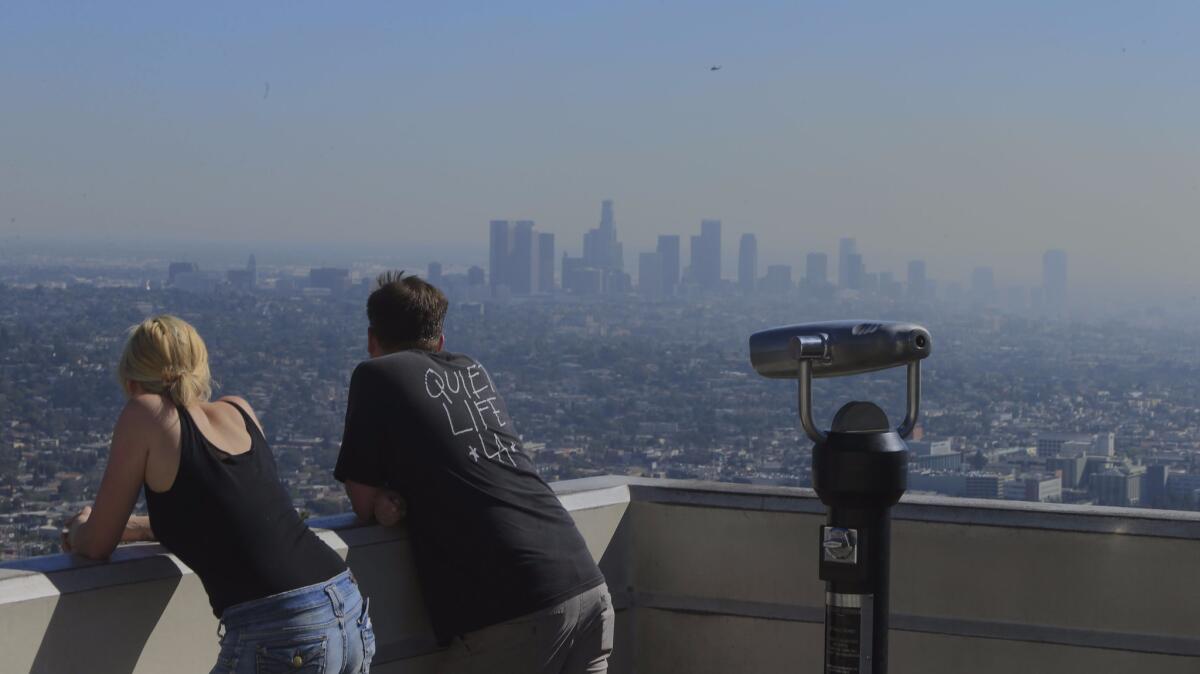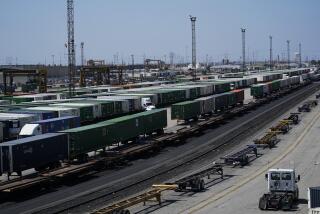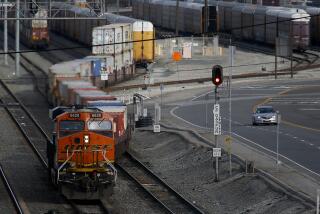L.A. power plants may burn dirty diesel fuel to avoid summer blackouts

Air quality regulators will allow the Los Angeles Department of Water and Power to violate pollution rules this summer by burning diesel fuel at three of its power plants, if doing so is the only way to prevent blackouts.
In a 3-1 vote late Wednesday, the South Coast Air Quality Management District’s hearing board granted the public utility a 90-day exemption from emissions limits and other permit requirements at its power plants in Long Beach, Wilmington and Sun Valley.
The utility petitioned to use diesel fuel as a “last resort” at three of its four plants to prevent intermittent blackouts if natural gas deliveries are curtailed because of the troubled Aliso Canyon natural gas storage facility.
The exemptions apply to the Haynes, Harbor and Valley generating stations, which are allowed to burn diesel only as a backup in case of earthquakes and other natural disasters.
The action comes after an April report by state energy agencies and the DWP that warned that Southern California could face rolling blackouts during as many as 14 days this summer if gas supply is curtailed following the the massive, four-month leak from a well at the Southern California Gas Co.’s Aliso Canyon facility.
State officials have imposed a moratorium on injecting any more gas into the storage facility, to be piped across the region as needed, until the operation is deemed safe.
Critics of the DWP proposal warned that switching plants to diesel could threaten people’s health by spewing out soot and other unhealthy pollutants, worsening air quality on some of the hottest, smoggiest days.
“There are better solutions than using highly polluting diesel fuel,” said Bill Magavern, policy director for the Coalition for Clean Air. “The people of Los Angeles shouldn’t have to pay with their lungs for the Aliso Canyon disaster.”
DWP Senior Assistant General Manager Mike Webster said the utility would burn diesel fuel only after exhausting a series of other steps to reduce electricity demand and natural gas use, including energy conservation measures, the purchase of electricity on the market and increased use of battery storage.
“There are significant health and safety concerns associated with rolling blackouts” that would far exceed the consequences from a short-term increase in diesel emissions, Webster said. ”We have elderly people unable to get to cooling centers, we have traffic lights out, we have people stuck in elevators.”
Consumer groups and other critics have raised doubts about the warnings of blackouts and say they are nothing more than a threat to justify the continued operation of the Aliso Canyon facility.
Officials with the DWP and the air district said a failure to prevent blackouts would actually increase emissions elsewhere by forcing hospitals, police stations and businesses to run diesel backup generators with few pollution controls.
DWP’s use of diesel fuel “will ensure a continuous supply of electricity”and “result in less air pollution than would otherwise occur from the use of thousands of significantly dirtier diesel backup generators,”AQMD acting executive officer Wayne Nastri said in a statement.
Among those criticizing the DWP proposal was former Los Angeles City Councilman Nate Holden, a recent appointee to the AQMD hearing board who will take his seat July 1.
“They didn’t make their case of other things they could do before taking such drastic action as using diesel,” Holden said in a phone interview Thursday.
Holden had twice spoken out against the DWP’s plan at the quasi-judicial air quality board’s public hearings — the only member of the public to offer spoken testimony during the four-day proceeding, an AQMD spokesman said.
The hearing board later informed Holden he could not testify due to his upcoming role as a member of the panel and that neither his spoken or written comments would be considered.
In addition to holding public meetings to address concerns in communities near the plants, the utility must pay between $1.5 million and $2.9 million in fees to install air filters and purchase electric buses for nearby schools.
ALSO
Clean car programs running out of cash in California
A new Malibu stairway is opening up public access to the beach
Strong winds push wildfire in Los Padres National Forest near Santa Barbara to 1,200 acres
More to Read
Sign up for Essential California
The most important California stories and recommendations in your inbox every morning.
You may occasionally receive promotional content from the Los Angeles Times.











